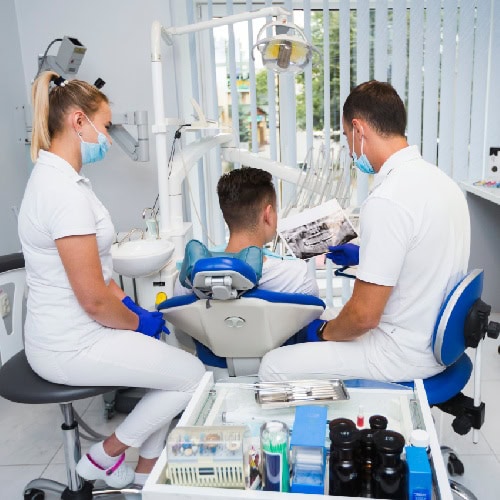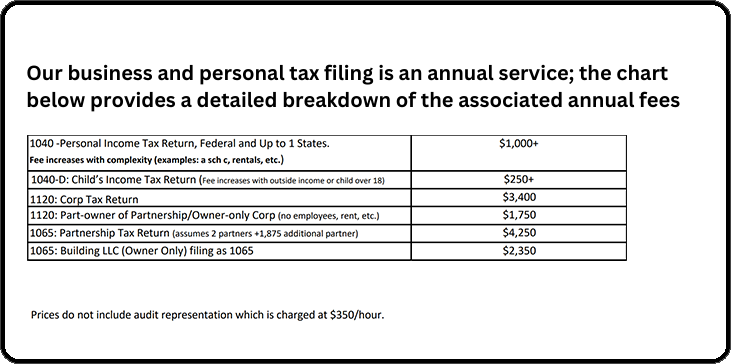Tune in to our podcast series: The Dental Board Room
Listen Now

Dentistry has changed more in the past twenty years than it did in the previous fifty. Technology, insurance structures, and business models have reshaped how dental care is delivered and how dentists build their careers. At the center of this shift lies a growing divide between corporate dentistry and private practice.
Dr. Howard Farran, founder of Dentaltown, has spent decades observing this divide from both sides. Drawing from his experience as a private practice owner and industry commentator, he offers a balanced look at what separates these two worlds, what each does well, and how dentists can learn from both.
Corporate dentistry, often called a DSO (Dental Service Organization), refers to a business model where multiple dental offices operate under a centralized management system. These organizations handle administrative functions such as payroll, marketing, procurement, and insurance processing, freeing dentists to focus primarily on clinical work.
Some DSOs manage only a handful of offices, while others oversee hundreds across different states. They use data-driven systems, standard operating procedures, and consistent branding to maintain uniformity and scale quickly.
Private practices, on the other hand, are typically owned and operated by individual dentists or small partnerships. The dentist makes all major decisions, from hiring staff and choosing suppliers to determining pricing and treatment philosophy.
This model gives dentists more autonomy and allows them to create a personalized patient experience. However, it also comes with heavy management responsibilities that require both clinical and business expertise.
Corporate groups benefit from economies of scale. By purchasing supplies and equipment in bulk, negotiating with insurance providers, and standardizing training, they reduce overhead costs that single-office owners often cannot match.
Large DSOs have dedicated marketing teams that run social media campaigns, manage online reviews, and use analytics to target local audiences. This professional marketing presence helps them attract patients faster, especially in competitive urban areas.
Corporate offices rely heavily on digital systems that track performance metrics such as treatment acceptance rates, production per hour, and patient retention. These insights allow them to refine operations continually and increase profitability.
Many new graduates join DSOs because they offer stable income, structured work schedules, and opportunities to gain clinical experience without the stress of ownership. It serves as a practical entry point into the profession, helping young dentists improve their skills before considering private ownership.
Private practices excel at building relationships. Patients often stay with the same dentist for years because they value familiarity, consistency, and personalized care. This trust leads to better case acceptance and stronger community loyalty.
Private owners can make independent decisions about the materials, labs, and treatment methods they prefer. This freedom allows them to innovate and adapt faster without waiting for approval from a corporate hierarchy.
Staff retention tends to be higher in private offices, where employees often feel like family rather than part of a corporate structure. This continuity improves patient experience and practice efficiency.
Though ownership involves risk, the long-term financial rewards can be significant. A well-run private office builds equity, allowing the dentist to benefit directly from the value they create over time.
| Aspect | Corporate Dentistry (DSO) | Private Practice |
| Control | Managed by corporate systems and executives | Fully owned and operated by the dentist |
| Efficiency | Highly systemized and metrics-driven | Dependent on the owner’s management skills |
| Flexibility | Limited due to standardized protocols | High flexibility in clinical and operational choices |
| Patient Experience | Consistent but sometimes impersonal | Personalized, relationship-based care |
| Growth Potential | Scalable across multiple locations | Slower but deeply rooted in the community |
| Profit Distribution | Shared among investors or executives | Retained entirely by the owner |
The industry is beginning to see hybrid approaches that combine corporate structure with private ownership principles. In these setups, individual dentists retain partial ownership while benefiting from corporate support in areas like accounting, compliance, and HR.
Howard points out that this balance can offer the best of both worlds: business stability with professional autonomy. Smaller DSOs with four to nine offices often fit this model, allowing local dentists to remain directly involved while enjoying corporate-level organization.
Dr. Farran believes the profession should not treat corporate and private models as opposing sides but as two parts of a larger ecosystem. Both serve important roles. The key for modern dentists is to choose a path that aligns with their goals, personality, and desired lifestyle.
Some dentists thrive in structured environments where management is handled by others. Others prefer the independence of ownership and the challenge of entrepreneurship. There is no single correct path, only the one that fits an individual’s strengths and ambitions.
The next decade will likely bring more consolidation, but also more opportunities for dentists who adapt. The most successful professionals will combine business acumen with patient-centered values.
Young dentists should learn not only clinical skills but also basic finance, marketing, and leadership. These competencies will allow them to thrive in any model, corporate or private.
As Dr. Farran often says, “The best business decision is the one that keeps you excited to go to work every morning.”
To hear Dr. Howard Farran’s full discussion about the future of private and corporate dentistry, watch our latest episode of The Dental Boardroom Podcast. The conversation explores how both sides can collaborate to create a stronger, more sustainable profession for the next generation of dentists.
Wes knows what's best for dental practices. He's been doing this for a long time and he sees lots of practices. He can tell me how our practice is doing, and what we can do to increase our productivity. With past CPA's, there were no ideas. It was all coming from me, saying "I think I can do better, but I don't know how." I come in to meet with Wes and he says "You CAN do better, and I know how."
PracticeCFO is in hundreds of dental offices around the country. They know what numbers should look like. They know what percentages of payroll, rent and supplies should be, and they will hold you accountable to those numbers, which will really help you stick to your plan and your path of growth and savings. That is invaluable
Whenever something comes up, whether it's building or practice related and we weren't sure where the numbers would go, PracticeCFO has been instrumental in helping us figure that out. I can't say enough of how important that is - that it goes beyond that initial partnership. They make sure this business marriage works.
When I go home from work, I don't spend a whole lot of time stressing about what my books look like, or how much I owe in taxes. By using PracticeCFO, the burden of keeping track of a lot of the big financial numbers and metrics are taken off my plate.
PracticeCFO helped me develop a plan for the future. I have colleagues that work with other accountants that don't have a plan - they just look at the numbers of the practice and that's it. There's no plan for 10, 20 years from now. But with PracticeCFO, you get that. PracticeCFO makes you feel like you're they're only client.
(In reference to his practice sale) What could've been super stressful, wasn't! When picking John and Wes, it was from word of mouth recommendations and other people's experiences from the past that really did it for me. And it turns out that those recommendations were right on the line.
Wes knows the business side of dentistry. His comprehensive plan will organize your personal and professional finances so you can focus on taking care of patients. Massive ROI.
I can’t say enough good things about everyone at PracticeCFO. Everyone on the team is professional, organized, knowledgeable, helpful and kind. They also respond to emails and phone calls immediately and are always happy to help. They have helped me navigate year-to-year as a business owner. PracticeCFO gives me peace of mind that my business is in good hands.
I love Practice CFO! They have helped me obtain a practice and maintain a practice. They are incredible people who are on top of everything and make owning and running the business portion of a practice easy. They couldn’t be better for my business and my sanity. They have every detail of the business and taxes taken care of where all I have to do is show up and follow their easy steps to success!
Practice CFO has the best tools I’ve seen for personal tax and financial planning in addition to top-tier corporate tax and accounting services. I have been very pleased with the level of quality service. They manage my monthly bookkeeping and accounts payable. It is a great system and saves me a ton of time, and it allows us to have monthly financial statements within a week of month end.

This will close in 0 seconds